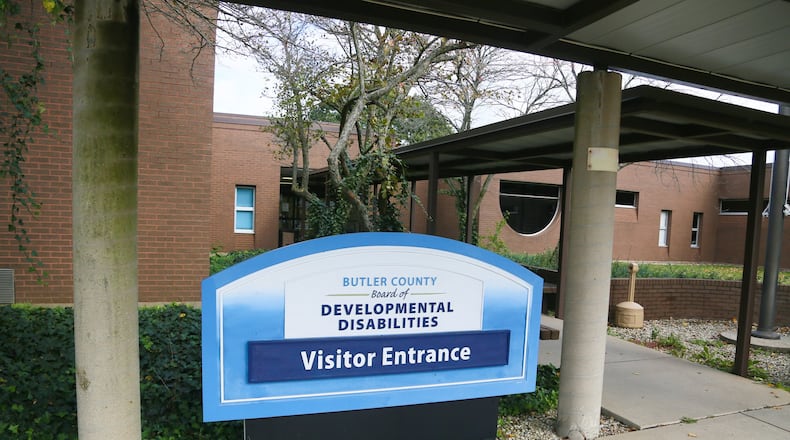Board President Tony Yocco said this week that neither is needed, at least not for this year. He credited Business Services Director Hailey Quinn.
“It’s really a testament to, partially the good breaks from a property tax standpoint that we’ve had, the reimbursements that we’ve gotten,” Yocco said. “But also the very sound money management culture that we have here. I’ve been very, very pleased with how Hailey’s been watching our budgets and continually making those course corrections as necessary. It’s a cautious hand on the tiller and I like that.”
RELATED: Butler County DD Board closing adult day center
Quinn said revenues in 2017 — 78 percent come from two continuous local tax levies — were $2 million more than expected for a total of $26.9 million. Expenses totalled $27 million, or $2 million less than budgeted. Taxes came in $658,000 higher than expected. The board also received almost $1.4 million more in state and federal reimbursements last year.
Just two years ago, the board was operating with a $3.6 million deficit. It initiated a buy-out program, and 23 employees participated and 12 positions were eliminated.
“As of Jan. 1, 2016 when the incentive program began and by 2019, our cumulative net savings will be $1.5 million,” Quinn said. “The majority of those savings are due primarily to those non-replaced positions.”
Closing its adult daycare center also helped the bottom line. Several years ago, the federal government decided it was a conflict of interest for boards to provide case management and direct services. The DD Board had until 2024 to close the Liberty Adult Center that served 125 mentally disabled adults, but it transitioned clients out to private providers and closed the center in late 2016.
The early closure — originally it planned to close Liberty Adult Center last year — saved $180,000 on top of the $1.4 million savings the total closure provided.
“Another area that has helped our bottom line was when we transitioned the day services out in the community we were able to shift those services so we did not have those overhead and personnel costs,” Quinn said. “Instead we are just paying the 40 percent match.”
Medicaid pays 60 percent for services the board provides, and the local levies make up the difference. Part of the reason the board has struggled financially in recent years has been an increase in those local waiver matching funds for Medicaid, to keep people with disabilities integrated in the community.
MORE: Union raises will be erased if BCBDD levy fails
In 2016 the local match was $12 million and BCBDD served 3,596 clients. The agency had 2,716 clients in 2011 and the Medicaid match was $7.6 million.
The phase out of personal property tax was also a big hit, as it went from almost $2 million in 2005 to $1,352 in 2016.
The board has relied on reserves to balance the books. The cash balance at the end of 2017 was almost $30 million — the board requires a 50 percent balance — but Quinn has projected that balance will slowly drop to negative $ 17.7 million by 2026 if no new levies are sought.
The BCBDD was last on the ballot in 2004, and Guliano said it will revisit the levy question in January after it sees what 2018 brings.
“We’re excited we have that news for the community this year,” Guliano said about the decision to hold off.
He said “it’s possible” the board might not even have to be on the 2019 ballot.
Taxpayers might also have seen a levy request this year from the Mental Health and Addiction Recovery Services Board to deal with the opiate epidemic. However, that board also backed off after Prosecutor Mike Gmoser reversed his decision on the ability to use mental health levy funds for addiction services. Now MHARS will be using some mental health levy dollars to support its $3.6 million Opiate Business Plan.
County Administrator Charlie Young said the independent board decisions were good news.
“It’s extraordinarily good news,” Young said. “Not only has this commission been able to work with all the elected officials to create a solid fiscal, financial picture for Butler County, we’re also working with the various agencies and boards Developmental Disabilities, Mental Health in particular, to try to lessen the impact whenever we can on our taxpayers.”
About the Author
